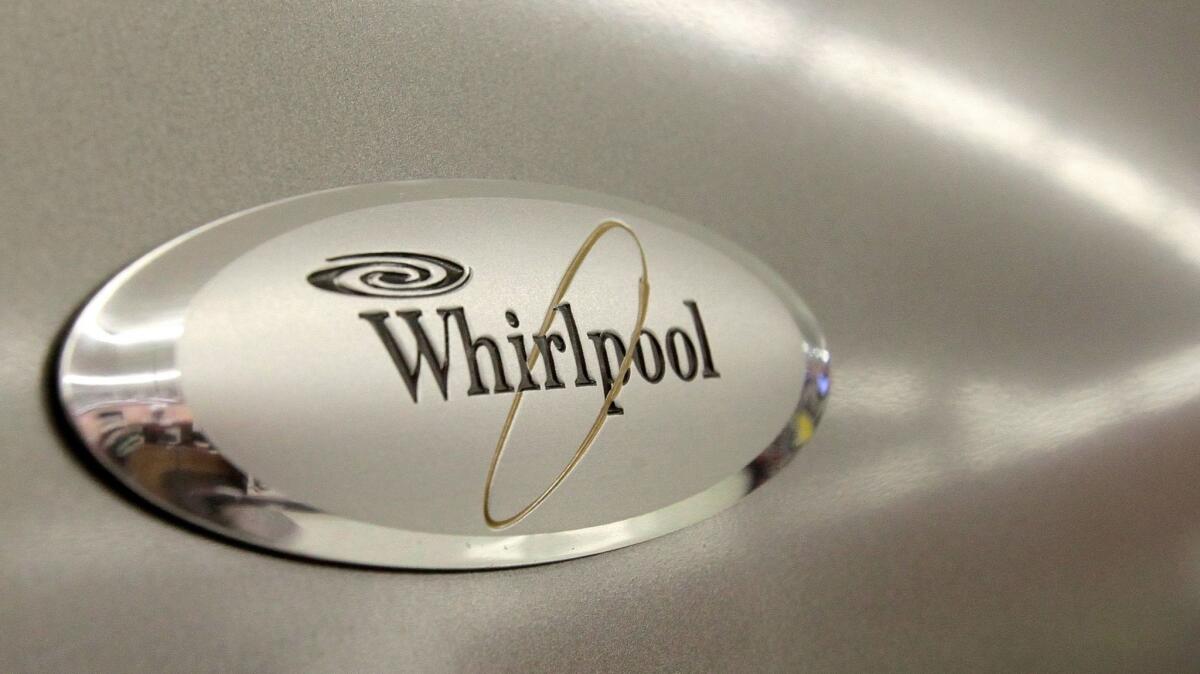Sears will stop selling Whirlpool appliances after 100 years of doing business

Sears will no longer sell Whirlpool appliances, ending a business relationship that dates back more than 100 years.
In a note sent to its stores last week, Sears said that Whirlpool was making demands that would’ve made it difficult to sell its appliances at a competitive price.
Sears has been ravaged by new competition for years, from stores like Home Depot and also from Amazon.com and other online retailers. It’s been closing stores as competitors take a bigger slice of the territory it dominated for decades. In the U.S., consumers buy most of their small appliances from Wal-Mart, according to market research firm TraQline. Amazon comes in second, with Sears placing fourth behind Target.
The end of the Sears-Whirlpool partnership is effective immediately,, and Sears is also pulling products from Whirlpool subsidiaries Maytag, KitchenAid and Jenn-Air.
Sears said that it would sell off the remainder of its Whirlpool inventory. Its stores will now only sell its Kenmore products and other brands including LG, Samsung, GE, Frigidaire, Electrolux and Bosch.
The relationship reaches back to 1916, when Whirlpool began making two types of wringer washers for Sears, Roebuck and Co., according to Whirlpool’s website. At that time, Sears operated exclusively through mail order. The Hoffman Estates, Ill., company, now Sears Holdings Corp., also owns Kmart.
Shares of Whirlpool Corp., based in Benton Harbor, Mich., lost $19.30, or 10.6%, to $163.16. Sears was unchanged at $6.56.
ALSO
Lord & Taylor sells its flagship Manhattan store to WeWork
Mann Packing recalls some bagged vegetables and salads because of listeria concerns
What would happen if Amazon brought 50,000 workers to your city? Ask Seattle
UPDATES:
7:45 a.m.: This article was updated with additional context about the Whirlpool brand.
This article was originally published at 4:15 a.m.
More to Read
Inside the business of entertainment
The Wide Shot brings you news, analysis and insights on everything from streaming wars to production — and what it all means for the future.
You may occasionally receive promotional content from the Los Angeles Times.









